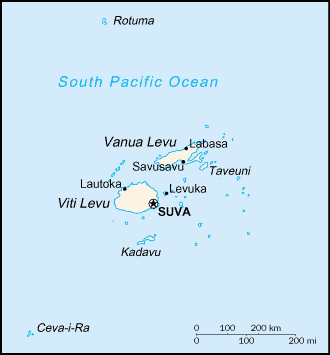By NewsDesk @bactiman63
Health officials in Fiji have reported an outbreak of leptospirosis; most cases have been recorded in the Central and Northern divisions. In response to the outbreak, the Fiji Ministry of Health is working to manage the situation, increasing disease surveillance and conducting clean-up and awareness campaigns.

This has prompted the Centers for Disease Control and Prevention (CDC) to issue a travel notice Thursday.
Officials note that Leptospirosis is a bacterial disease and people (and animals) can get infected when they are exposed to the urine of infected animals. They can also get infected from water, soil, or food contaminated with infected animal urine. Leptospirosis bacteria can enter the body through skin or mucous membranes (eyes, nose, or mouth).
Travelers to Fiji should take the following steps to prevent leptospirosis:
- Avoid contact with fresh water or wet soil, as it could be contaminated with animal urine. Don’t wade through, swim in, drink, or swallow water from lakes, rivers, ponds or streams.
- Do not walk outside barefoot. Wear waterproof protective clothing, especially footwear, if you must have contact with water or wet soil.
- Cover any cuts or scratches with waterproof bandages.
- Be sure to tell your healthcare provider about all your planned activities.
The good news is officials in Fiji report there has been a decline in leptospirosis cases from the peak of more than 100 cases a week to less than 20 cases per week.
- Plague: Bubonic case reported in Khovd province, Mongolia
- Russia: Six botulism deaths in Volgograd in first half of 2020
- COVID-19 in the Philippines: Cases top 300,000; Taguig COVID-19 complex inaugurated
- Taiwan local dengue cases rise to 32, Recent cases reported in New Taipei City
- China: Suspect bubonic plague case reported in Yunnan Province
- SARS-CoV-2 commercial antibody kits: Accuracy varies widely according to researchers
- Rabies in the Americas: Dog-mediated human rabies has been reduced by almost 98%

